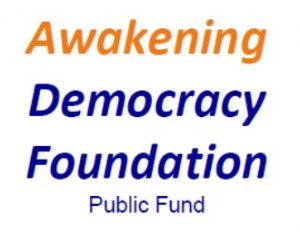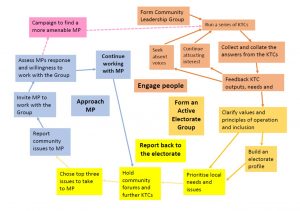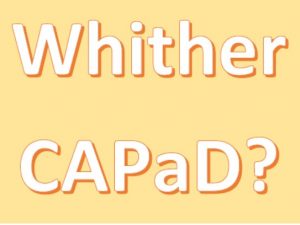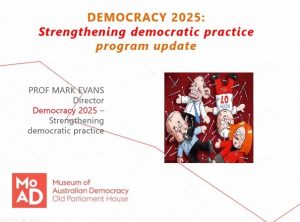CAPaD is working for the best democracy we can have. This page shows off what we are doing and what we have done previously.
Please explore
Please click on the tab to open that activity
The formal Rules of the Awakening Democracy Foundation Public Fund can be found here.
Further details about the operation of the Foundation can be found in the Education Strategy tab below.
Non tax-deducatble donations can be make on the Join in page.
CAPaD intends to achieve its purpose and mission through its Education Strategy.
| Education Framework:
Outcome 1 – understanding government systems Outcome 2 – understanding influences on democracy Outcome 3 – harnessing the political system Outcome 4 – reforming the political system
A copy of the Education Strategy outline can be found here. Our current 2023-24 Education Strategy Implementation Plan can be found here. The 2023 Report against Implementation Plan. The 2022 Report against the Implementation Plan. Click on Resources Hub in the menu above to go to the educational Resources Hub. |
Furthering community participation in 2025
2024-25 Project - Democracy in Action! Conversations An offshoot of the Living Democracy program to develop awareness among ACT voters about representation for the public good and focusing on means to choose candidates who will work for the public good and community participation in politics. Running for the ACT election in 2024 and the 2025 federal election.
In more detail: Developing a more exact job description for parliamentarians in the lead up to the federal election, to capture in more detail how we expect them to work for the public good and then use that to develop a mechanism for reporting that to the MP’s electorate community. Based in the outputs of the 2024 ACT election Democracy in Action! Conversations, hold another series of conversations to look at what the role of a parliamentarian entails and then use this to write a job description for them, including performance indicators. Link this to conversation about candidate selection alternatives with Progress Action Labs work. Holding another round of Know Your Candidate forums based on that job description and indicators for federal election candidates to explain how they will measure up to these. Developing the mechanism for reporting our parliamentarian’s representative activity to the electorate communities Advocating for an ACT participatory budgeting trial with the new Assembly. Developing ideas for and seeking funding to set up a Standing Citizens’ Assembly pilot in the ACT. |
In January 2024 Active Democracy Australia and CAPaD merged. Active Democracy Australia (ADAus) is a project of CAPaD's, to continue promoting electorate communities and their MPs / MLAs working together for the public good.
To be involved, email us or fill in the Contact Form on the Active Democracy Australia website.
ADAus collaborates with Change Politics to promote electorate level deliberative events and processes.
Have a look at the website.
 Active Democracy ACT
Active Democracy ACT
It’s time for our voices to be heard: Active Democracy wants to change how our federal MPs work with and for us.
Active Democracy ACT is a group of citizens, inspired to work together to make this happen. We welcome others who want to join us to grow this group and help design our new politics.
Even if you can’t join us now, and you want us to be successful, you can help by letting others know about us.
An Active Democracy group has set up in Bean. Information and contact details are here.
People in Canberra and Fenner who want to join in, please click the Join in ... button.
The more people participating together, the stronger we can be.
Genuine Engagement Tool for Participatory Processes
The Genuine Engagement Tool (GET) is designed to help any community reflect on their experience of how effectively their government is engaging with them to make wise decisions together for the public good.
It is designed to help communities stimulate their critical thinking by answering key simple questions in 11 categories to review any government engagement process and it is particularly suited to implementing effective citizens assemblies.
By using the tool, communities can get clear insights on how they can keep their own power and agency over what can work better and they can communicate more transparently about how governments can engage better.
You can get an open source copy of the Genuine Engagement Tool for community groups here and you can read the story of how it was developed here.
A brief video explaining the tool and how to use it is here.
Please download it, use this, acknowledge the source and feedback to us how you went with using it.
The failure of civics education in schools is recognised as one factor in low 'political literacy' in Australia.
This project wants to see how teachers can be supported to provide civics education that students find fun and stimulating.
And to see what can be offered to adults, particularly migrants from other political systems.
One outcome might be a Community of Practice around education for civics what would provide a space to “explore and share questions and topics re democracy education; provide some advice, resources, and maybe even training to teachers to support their civics teaching”.
There are other possibilities.
Our conversation is only just beginning (May 2023).
Some early thoughts are set out here.
Ideas from our first conversation are here.
Keep an eye on our Events page for further meetings.
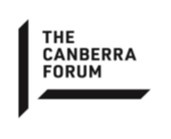 The Canberra Forum: 'Another way of listening'
The Canberra Forum: 'Another way of listening'
In 2023 Alicia Payne, ALP member for the ACT federal electorate of Canberra, and DemocracyCo ran the Canberra Forum, a citizen participation event to explore other ways for MPs and citizens to work together for the public good. Further information is available from Alicia Payne’s website.
CAPaD helped initiate and participated this initiative by coordinating support for observers and collecting observers' reflections on their experience.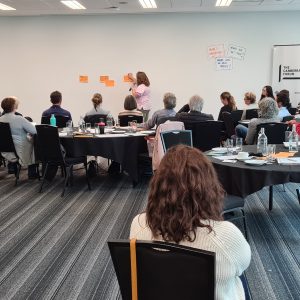
The Forum chose Housing Affordability as their topic for deliberation.
The CAPaD Committee has used our Genuine Engagement Tool (GET) to reflect on the Canberra Forum. We obtained feedback from Alicia Payne and DemocracyCo. The completed reflection is available here.
Meanwhile the Report from the Forum is up on Alicia’s website and a 3 minute video reporting participants positive experience is also available.
We are interested in collecting further thoughts and ideas that you have about the Forum. If you would like to run one yourself, we are happy to advise. Again, please email us.
Why Kitchen Table Conversations?
CAPaD values the kitchen table conversation (KTC) method as a way to connect people through community-based, self-managing conversations. We believe that many people hosting and participating in KTCs will help create the pre-conditions for people to desire and be able to join in participatory democracy.
We want to use Kitchen Table Conversations as a way to bring people together to work toward all our objectives.
The primary aims of the KTC method are:
- to connect people
- to give them the chance to listen non-judgementally to what others think about things
- to safely express and develop their own opinions.
CAPaD does not primarily use KTCs as a way of gathering input to Government consultation processes.
We do advocate for other community groups and the ACT government to use community dialogue such as KTCs, but we support them to do that where we feel we can add value.
KTCs can feed into other participatory and deliberative practices.
The KTC Methods Action Group was formed at the start of 2018. It reviewed KTC materials developed and used by other groups (including SEE-Change in the ACT), and developed its own KTC Kit with optional discussion questions.
This was launched in November 2018 and is free for all to use. You can download the CAPaD KTC kit here.
Go ahead and develop new discussion topics and modify the process however you wish, and use it for any small-group discussion.
CAPaD would love to hear about your experiences and any feedback you might have. Please contact by emailing the Secretary.
What’s in the kit?
- 1. Summary of the KTC process
- 2. Why CAPaD recommends Kitchen Table Conversations
- 3. How the process works
- 4. The courage to host
- 5. Conversation agreements
- 6. Role of the Host
- 7. Role of the Scribe
- Attachment A: Conversation guide A: Democracy in the ACT
- Attachment B: Conversation guide B: What’s important to you? (ACT-region focus)
- Attachment C: Conversation guide C: Choose your own topic
- Attachment D: Sample invitation
July 2, 2023 Exercising our democratic muscles and 3rd September Making Living Democracy – zoom events
Building on the May Canberra Conversation, this event explored Tim Hollo's Living Democracy, with a focus on withholding consent and building the alternative systems.
A write up summarising the event is here.
The video of the third Canberra Conversation zoom on Living Democracy into being is here.
May 28, 2023 - Creating Democratic Energy Systems in Australia
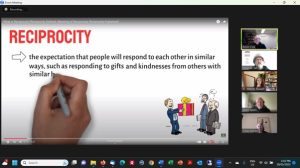 Kevin Cox has been advocating for democratising energy for many years.
Kevin Cox has been advocating for democratising energy for many years.
Mark Spain is active in promoting localised solutions in global contexts.
Wendy Russell has been researching community batteries and micro-grids for ANU.
They will introduce the ideas for localised democratic energy systems and then open up to discussion for how these might be created by local communities here in the ACT in particular. New thinking is required but not all is as easy as it seems.
You can find more about Kevin's ideas for sharing profits leading to a circular economy here. Have a look at this outline for a way to fund well-being - or things that do not have to make a profit
October 23rd, 2022 - CAPaD’s future activity focus
To explore members views about the reasons for and implications of:
- establishing the Awakening Democracy Foundation to receive tax deductible donations for educational charity purposes;
- consequent key word changes in the objects in the CAPaD constitution (as per AGM proposal) from government to parliament, or some other wording, so that the objectives reflect our current focus;
- scope other possible constitutional changes to reflect our evolving activity focus; and
- members being involved in various action learning projects bringing democracy to the people
See Events to register and download background reading.
September 18th, 2022 - What have we learned from the 2022 Election?
 The 50 minute YouTube video is here.
The 50 minute YouTube video is here.
A brief summary of the session is here.
July 2022, 17th. The Genuine Engagement Tool.
In this 17 minute video Mark Spain outlines and explains the Genuine Engagement Tool that CAPaD has developed from our experiences observing citizen juries in action over the past several years, and from our collaboration with the OECD review of deliberative forums. For more information and a downloadable copy of the tool, see here.
September 2020, 2nd and 9th Empathy and Collaborative Meaning-Making: An Overview of Citizens’ Councils
The details from the sessions held can be found on this page. This workshop gave a taste of Dynamic Facilitation as a process in the “operating system” of the Citizens’ Councils recently featured in the OECD’s report on “Innovative Citizen Participation and New Democratic Institutions”. It was hosted and facilitated by Rosa Zubizarreta, Andy Paice, Martha Cuffy and Mark Spain.
August 2020 Mark Evans, Democracy 2025 – bridging the trust divide
The YouTube video in here. The powerpoint presentation is here.
July

2020 Citizen Review of 2017-18 ACT Deliberative Processes
Lyn Stephen's paper: Government with the people - building trust in deliberative processes, and slide presentation.
The YouTube video is available here.
 June 2020 ACT Election - Choosing the candidate who will deliver government with we, the people.
June 2020 ACT Election - Choosing the candidate who will deliver government with we, the people.
Zoom presentation and discussion.

May 2020 Revitalising democracy: possibilities for electorate level mobilisations to achieve better parliamentary representation
Look at the session video here.
 DemFest 21
DemFest 21
A festival celebrating locally driven democracy in Australia.
We continue to hold conversations to look at how we can mend democracy. See our Events.
Visit the DemFest21 site to view the presentations and watch the videos of the sessions
DemFest 2016
DemFest 2016: People Power for Democracy : Canberra’s first Festival of Democracy was held over the weekend of 18–19 June 2016 at the University of Canberra.
Tech Supporting Democracy is a project of Active Democracy Australia.
An initial zoom seminar was held on November 16th. Twenty one people attend to listen to Alex Beyer (VoteCompass) Sean Johnson (Open Politics) talk abut their respective projects. Further information about this initiative and a link to the video is available at Active Democracy Australia.
CAPaD focusses on taking action to change politics so people can participate better in decisions.
We work through Action Groups.
Click on an Action Group box below for information on how to become involved.
- Alliance Building: meeting other groups and ACT government people and raising our profile, and additionally through the Citizens Juries and Urban Planning groups’ work.
- Citizens Juries & Mini-Public Evaluation: a series of Hear the Participants events, and connections with government, academia (Canberra University Institute of Governance and Policy Analysis) through the Deliberate ACT community of practice.
- Good Citizens Guide: indirectly, worked with the Frank Fenner Foundation on a basic Understanding and Using Government Effectively Manual.
- Creating the New Story: the Action Group wove this thread into several other action groups’ work.
- Kitchen Table Conversations Community Dialogue Methods: the Group revised the KTC kit and published it on our website.
- MLA Accountability / Relationship: mapped out a plan of action, revised the 2016 candidate statements and as arranged a stall at the Southfest event to open dialogue with people about being represented.
- Resources / Library (good-things-to-read): designed a topic list for our library and continued to collect useful material. This links to revamping the website to make if more accessible.
- Social Change Training: activity here was immersed in the work of other actin groups.
- Urban Planning Participation Working Group: continued informally in conversation with residents’ groups and other community organisations and our involvement in various ACT government consultations such as the Better Cities Engagement.
- ACT 2016 Elections : CAPaD's candidate statements were well-received by the candidates and by the public.
- DemFest 2016: People Power for Democracy : Canberra’s first Festival of Democracy was held over the weekend of 18–19 June 2016 at the University of Canberra.
- Federal 2016 Elections : Completely ignored our requests for candidate statements, indicative of attitudes generally.
Opinion, comment and Letters to the Editor
2022
May 2022 2XX Behind the lines: Saffron Zomer (Australian Democracy Network) and Peter Tait (CAPaD) on democracy and the 2022 election. Audio. 56 minutes.
March 2022 2XX Behind the lines: Peter Tait talking about CAPaD, Active Democracy Australia and making democracy work this election. Audio file. 56 minutes.
2020 September October
October 16 Article in the RiotACT by Genevieve Jacobs: What do all those candidates really believe? Here’s how to find out
October 8 City News, Peter Tait Getting the Canberra we want to live in. Why invite candidates to tell us about themselves?
October 6 Canberra Times front page advertisement for the candidate statement.
September 17-23 City News Advertorial on our election program.
2020 May: ACT Media coverage: letters to editors about our candidate statement exercise in a letter published in the Canberra Times in mid-May and the City News in late May.
2019 Dec: See our piece in ACTCOSS journal about CAPaD's thoughts on more accountable representation.
2019 Nov: Rebecca Vassarotti reports on our MLA interviews report, Exploring political representation in the ACT, piece in RiotACT.
2019 Oct: City News, Peter Tait’s Neat summary of CAPaD’s position on ideas to change ACT democracy.
Media stories
2024 June 25 Electors tell survey: we want to be listened to, Katarina Lloyd Jones City News
2020 October 2: Peter Tait interviewed on 2XX, updating voters on the election and candidate statements, democracy, and lots more.
2020 August Peter Tait was interviewed on 2XX on Friday 28th August about democracy, our upcoming election, the candidate statements and more. Hear the wide ranging interview at this link.
2020 May Peter Tait was interviewed as part of an ABC piece, Amid a coronavirus pandemic, ACT election candidates are preparing for a very different campaign. “The alliance hopes this year's campaign will force candidates to use such options {candidate statements} to connect with voters. And Dr Tait says that, with the usual campaign tactics suspended and politics out of peoples' faces, voters may turn to candidates' statements to figure out where their vote should fall.”
Blogs
March 2020: We have explained our broad 2020 Election strategy in Awakening Democracy by Robust Representation in John Menadue’s Pearls and Irritations and a copy is in our website.
Are you interested in exploring how citizens and governments can better deliberate, decide and collaborate — together?
Join members of the public, academics, passionate democracy advocates, engagement practitioners, public servants.
Deliberate ACT is a collaboration between the
- Canberra Alliance for Participatory Democracy,
- University of Canberra’s Centre for Deliberative Democracy and Global Governance
- ACT Government.
Meet Up 9
Recap of Meet Up #9 held on 14 February 2019, when we considered:
Youth Engagement with Democracy — opportunities, competencies and challenges.
Meet Up 10
Recap of Meet Up #10 held on 11 April 2019, when we considered:
Meet Up 11
Recap of Meet Up #11 held on 23 May 2019, when we considered:
Meet Up 1 and 2
Establishing ground rules and purpose
21 February 2018 and 22 March 2018
Meet Up 3
Overview of the recent Citizens’ Jury on Compulsory Third Party Insurance and Citizens Jury Evaluation Principles
2 May 2018
Meet Up 6
Presentations from the University of Canberra’s Centre for Global Governance and Deliberative Democracy
6 September 2018
Meet Up 8
CAPaD Learnings from the ACT Deliberative Processes
22 November 2018
• Att A — Principles for the trial of Citizens Juries in the ACT
• Att B — CAPaD Learnings from the ACT deliberative processes final

